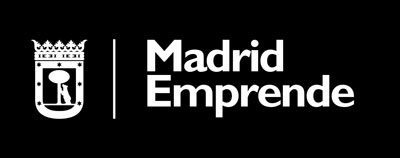- The Registry of Intra-Community Operators (ROI) is a census managed by the Tax Agency that brings together professionals and companies authorized to operate and invoice with commercial partners from other EU countries.
Today, trade is increasingly seen from a global perspective, with a large volume of exports and imports between countries. Consequently, the different taxes or tariffs stipulated for each type of transaction must be taken into account depending on the target market.
Companies or legal entities that want to participate in international trade within the European Union (EU) must be registered in the Registry of Intra-Community Operators (ROI). Here we will unravel what ROI is, why it is necessary, who should be part of it, and how to apply for it.
What is the Registry of Intra-Community Operators?
The ROI is a census managed by the Tax agency which brings together professionals and companies authorized to operate and invoice with commercial partners from other EU countries. Its main function is to harmonize intra-community operations, simplifying VAT management at EU level.
The Council Directive 2006/112/EC (later modified by the Directive (EU) 2017/2455 of 5 December 2017) regulates this registration, providing detailed instructions on how companies should register and report intra-EU transactions, as well as other relevant information. Registration in the ROI grants authorization to be an intra-community operator and obtain the tax identification number (NIF), essential to carry out VAT-exempt operations with EU companies.
Who should be part of the ROI?
The ROI is designed for entrepreneurs, self-employed professionals and commercial companies that carry out operations such as:
- Acquisition and sale of products to companies in other EU countries.
- Acquisition and sale of services to companies from other EU countries.
- Registration is necessary regardless of the amount or VAT regime that applies to each case.
ROI enrollment process
The ROI registration process It is an essential requirement for any company or professional that wishes to carry out intra-community operations. This process is carried out by presenting form 036, a census declaration used to register with the Treasury as a professional, with some variations.
The key steps are:
- Complete form 036: check box 582 for registration request and specify the expected date for the first operation in box 584.
- Check in the “Service provision locator” and “Goods delivery locator”: before the operation, it is advisable to use these tools in the “VAT Tools” to verify if the operation will require participation in the ROI.
- Obtaining the NIF: after acceptance of the application, the NIF will be assigned, composed of the ES prefix and the NIF of the applicant.
- Follow-up of the request: if the Tax Agency does not resolve within three months, the assignment of the requested number is considered denied.
- Intra-community billing and ROI.
In this link The content of the census of taxpayers is found to know what data must be provided.
Once registered in the ROI, the intra-community operator is authorized to carry out VAT-exempt operations with EU companies. When making an intra-community invoice, it is essential that both the sender and the recipient are registered in the ROI and have their own NIF. The invoice must be issued as an intra-community transaction and the NIF of both the seller and the buyer must be entered. Using VIES, a search engine for intra-community operators provided by the Tax Agency, can be crucial to verify the validity of the numbers.
The Registry of Intra-Community Operators is a strategic ally for those who participate in international trade within the EU. Registration in this census not only simplifies VAT management, but also guarantees operations without fiscal surprises, aligning with EU regulations.
In this way, we will take advantage of the tools that the tax system offers us to do business more efficiently and comply with tax obligations.

